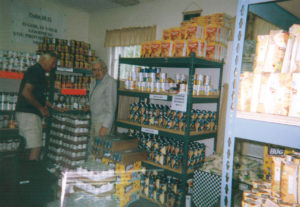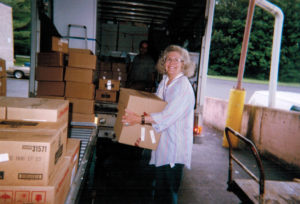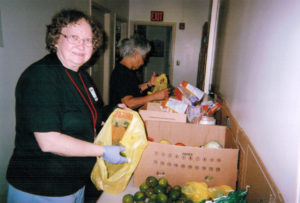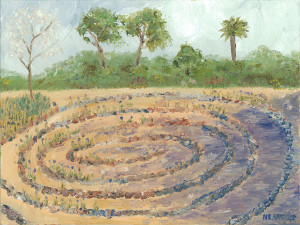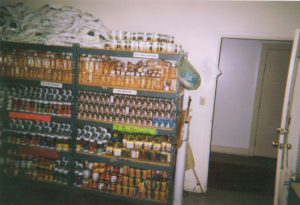Hungry and Homeless Now
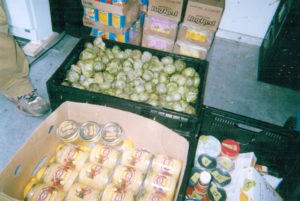

The food pantry is closed for business and will not open today.
Where will the hungry and homeless go now?
It’s Wednesday, the pantry day in Woodstock. Weekly, the food pantry attracts several hundred hungry and homeless people to the basement of a local church where they experience community, gratitude, healing, and a three-day-supply of shared food. The isolation often felt by hungry and homeless people is softened in the pantry. One thing the soul longs for is connection.
As people travel down their life path to the pantry, they lose things. One of the most soul-strangling downsides of this new-found simplicity is isolation experienced as people become cut off from their community. This experiences always changes reality.
When people no longer fit in, their voices become smaller and smaller and smaller until, finally, all is silent.
The rule is this: As the community for the hungry and homeless diminishes, so diminishes the support system.
All things are connected and intertwined but we have a difficult time remembering this when we are in our most alone circumstances in life. With assistance, we begin to recall our spiritual connections and know we are not along, not forgotten.
But, with the Coronavirus, this is very challenging. A few things are in play here.
First, for those needing to shelter in place, the main question is this: ” Where will I go?” Sofa surfing won’t happen anymore. The cemetery will work as long as it doesn’t snow or rain.
Second, a person without food can think of nothing else: “Where can I get food?”
For the hungry and homeless person in Woodstock, that focus is real because the food pantry closed.
At a time when the people need this food the most, the pantry is closed.
“Where can I get food?”
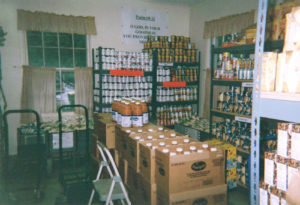
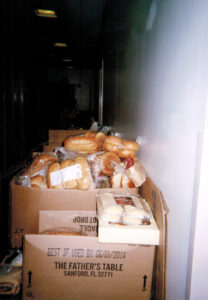
Thank you for reading this blog post!
Please refer it to your preferred social media network.
Thurman Greco
Woodstock, New York

Hunger and Healing for Ourselves and our Planet During this Spring Solstice
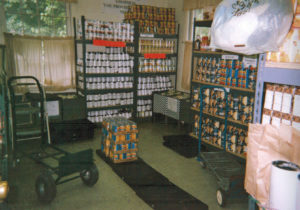
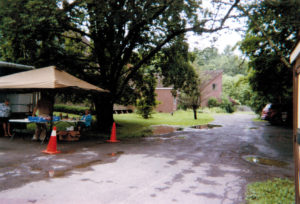
Throughout the month, and especially on March 19th, whenever you find a time and place that fits your schedule…sit quietly for a few moments and visualize a world where positive renewal and growth exists for all beings.
Invite adequate housing, nutritious food, and reliable quality healthcare to become a reality for all.
Plant spiritual seeds to nurture goals and dreams of everyone. Reflect on all the wonderful opportunities available in our world for growth and hope throughout our planet.
Spend a moment including goals for housing and food and healthcare for those who have insufficient resources
Honor the mystical and magical change of seasons creating space for the spiritual growth for everyone.
Check in with yourself now. Give your spirit the support it needs and seeks to bring housing, nutrition, and good health to everyone on our planet.
Quiet your mind as you bathe in this new energy created by spring. Invite universal balance, and abundance into our world.
May all beings on this planet live and thrive in peace and harmony.
Thank you for reading this Meditation.
Please refer this article to your preferred social media network.
Thanks again
Thurman Greco.





What I Believe – Seniors in a Food Pantry
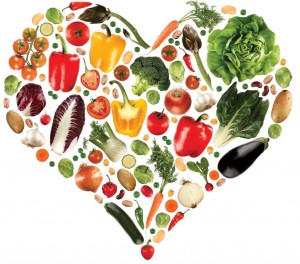
As seniors age, the courage we experience becomes more obvious as we feed hungry people. After all, what does a senior have to lose? Courage is a necessary part of the aging personality because our platform continually shrinks.
We’re often overlooked in the homeless arena. Those looking out forhomeless people focus on an older adolescent (especially if there’s an infant involved), and families. There’s just not much energy left over for hungry people seniors and cocker spaniels.
It never occurred to me that turning away hungry people in the pantry line was something I would do. Or could do. Or even consider doing. Turning away hungry people was not an option.
I came to the pantry as a crone or harridan depending on the circumstances and a person’s attitude toward me and my attitude toward hunger. I brought already formed opinions and beliefs, many of which were with me at birth.
Some argue that people are born as blank slates. I can’t agree. For one thing, I never experienced a blank slate when it came to hungry people. I didn’t have an “aha” moment when I met my first hungry person. I didn’t examine the value of feeding hungry people in a philosophy or government class. I never, at any time, analyzed the concept of feeding the hungry.
Because I lived my opinions about hunger, and because I got up close and personal with hungry people in Mexico and Venezuela, I was comfortable with the concept of feeding hungry people.
I never even considered not feeding hungry people I the food pantry. When I saw them, I remembered moments in Mexico and Venezuela and realized hunger is an intensely personal situation accompanying malnourishment. Hunger can lead to starvation.
Hungry people needing food are voiceless. Even though it’s harder on those with mental and emotional issues, it impacts everyone spiritually.
As they distribute pantry food, volunteers reduce costs in other areas of government: healthcare, housing, education.
A long-term poor diet contributes to illness which poor people can’t afford. Healthcare costs get shuffled over to taxpayers. When forced to choose between housing and food, the hungry often opt for housing. Later, if they can’t pay the housing costs and end up homeless. This results in further tax bills.
When school children are too hungry to learn, the damage is long term. They risk becoming uneducated adults unable to qualify for employment. Our problems flow to the next generation and the future.
DANA
“Hi, Dana. Come on in and shop. How’re you doing this week?”
“Fred’s still in the hospital. He’s been diagnosed with kidney disease and he’ll be on a special diet when he comes home.”
“I’m sorry to hear that.”
“I’m so glad you sent me to Dr. Longmore. He told me exactly who to go see, what paperwork to get, everything I needed to get care for him. I hope Fred’s coming home soon.”
“Dana, I’m so happy to hear this.”
“Thank God the pantry has all these fresh fruits and vegetables. By the way, do you have any laundry soap today?”
“I wish!”
I met Dana the first morning I worked in the pantry and she shared her adventures with me every week from that pantry day on. Of all the people going through the line in the pantry, I probably learned more about her than anyone else.
I never learned where she lived, how many children she had, where she came from or anything like that. What I learned from her was a running commentary of present tense food insecurity. She shared her daily struggle as she traveled through life trying to keep a roof over her head, clothes on her back, and food in her refrigerator.
Walking through the line weekly, she shared her life with me. I learned how she found a coat for the winter when the old one wore out and she had no money.
“Dana, your coat is beautiful!” It’s going to keep you so warm!”
“Yes, it is, isn’t it? You should have seen it when I found it. It was filthy!” I couldn’t even tell what color it was. I took it home, put it in the tub and worked on it all afternoon ’til I cleaned it up. Now look at it. It’s a perfect fit!”
I learned how she struggled to keep her car going…and then finally gave it up.
“The bus is working out real well over here. I catch it about two blocks from my apartment in Saugerties and ride it over. I wait in the hall ’til it comes back to take me home. I only have to carry my groceries about five blocks in all! I’m so lucky I found this bus. I get to ride free because I’m a senior!”
Dana was the most confirmed optimist shopper in the line. And, when Dana was in the line, I was the most confirmed optimist pantry volunteer in the place.

Thank you for reading this article! Please refer it to your preferred social media network.
Thurman Greco
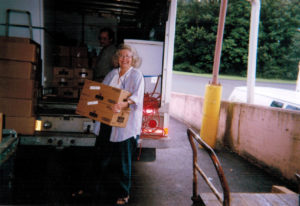

Preventing Senior Hunger

For years, I’ve been blogging and writing books about hunger in America in general and senior hunger specifically.
Senior hunger is not going away anytime soon.
If you read my blog posts, then you are probably interested in senior hunger. Recently I came across a guide which you will want to read.
To learn more about senior hunger, access it here: https://onlinegrad.baylor.edu/resources/seniors-food-insecurity-hunger/
Thanks for reading this article and thanks for your interest and action.
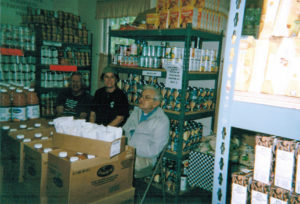
I hope you’ll not only read this article but will also share it wherever you feel it might be appropriate.
This new resource may be of interest to readers everywhere. The goal is to help open a dialogue in our country about senior hunger.
Thank you for your time and thank you for your concern about seniors and hunger.
Thurman Greco


Please share this post with your preferred social media network.
Abundance 2: LeAnna, Catherine, and Jane – Women, Mothers, and Hunger in the Food Pantry


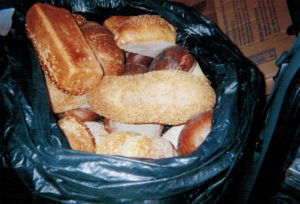
Abundance. LeAnna volunteered in the pantry. She had a business degree, a house, two adorable children and a spouse with a fancy career post somewhere in Europe. He decided he wanted nothing to do with her anymore. No money came across the ocean for her and the children. There was no money for taxes she owned on the house, or anything else for that matter.
LeAnna was happy to take the vegetarian items available each week. Her children loved fresh vegetables so there was much to choose from. The girls saw yogurt as a treat.
Catherine had a house full of children including two so close together, I thought they were a set of twins. She couldn’t get it together to work. And, I doubt if she could have gotten employment in our area anyway. This lovely lady had two advanced degrees.
There weren’t many, or possibly any, jobs available in Ulster County in her career field. And, of course, once a woman gets an advanced degree, the lower level jobs aren’t open to her unless she hides the education. Sometimes education can be hidden. Sometimes not. It all depends on the situation. The main thing is to get it off the resume.
Catherine was open-minded about the food she selected. She took anything not tied down. Because she qualified for cases of USDA, Catherine left the pantry with a case each of pasta sauce, canned corn, green beans, vegetarian beans, refried beans.
When she finished shopping, ten-year-old Robert Allen, our next-to-youngest volunteer, brought out the flatbed metal wheeled cart, put her groceries on it, and wheeled them to her car. Little toddler Mikey, our youngest volunteer, ran along behind.
I saw Jane, the young mother who couldn’t work because her husband threw her up against a wall, injuring her back. She had an eight-year-old child she was trying to raise without the luxury of child support.
Jane chose items from shelves where bending and stretching weren’t necessary because she couldn’t do those things.
And, to return to the beginning of Abundance, these three families and referenes to the critics about shoppers all owning upscale cars – Catherine, LeAnna, and Jane owned fairly late model SUV’s in good condition. They invited the criticism of the pantry naysayers when they drove into the parking lot to shop.
Here we had three households, single-headed households in need of food. If not for a couple of years, then for several months.
For some, feeding hungry people means we fed freeloaders. Not all hungry people look needy. Some of the best-dressed people in Woodstock never spent a dime on their clothes. They had no money for clothes so they shopped at Family of Woodstock.
Neither of these households was homeless, although they could be when the tax collector came to call.
Neither of these households was without transportation although they could be if the SUV needed expensive repairs. Nobody in these households looked poverty-stricken although they could be if the car needed repairs.
For the moment, neither LeAnna, Catherine, nor Jane looked poverty-stricken although, they would in time with no child support from the spouse to help with expenses.
These three women had several things in common. They were divorced. They had children. They received no money from the ex-spouse even though each one had a lucrative, influential employment career, money, and a bright future.
There was not a job among them.
There was little or no money for a food budget even.
LeAnna, Catherine, and Jane each lived with abundance on one hand, a large box of unpaid bills on the other hand, and hope, dreams, and fears somewhere in the middle.
The children were eligible for school breakfast and lunch programs. But, that didn’t give them enough food to eat at home. And, there was no lunch program for the mothers.
So, it was off to the pantry. This was a life-changing decision. Using a pantry requires commitment, endurance, and effort. Attitudes about food in particular and life in general change.
Pantry shoppers are often self-disciplined, self-controlled, determined to do what is best for the family.
Freeloaders? What do you think?
Every week when these women shopped I saw myself as a young woman returning from Mexico with my two daughters and nothing but the clothes on my back. There was no way anyone, just by looking at me, would have known how little I had.
Whether we come to the pantry as shoppers, volunteers, or both, all of us are asked by the pantry to leave; the past behind. And, of course, that’s different for everyone.
How can we move forward into a new life if we never give anything up? For some, giving up the past means letting go of the job we lost, the home, the furniture that went in the home, maybe the family, self-esteem, the car, good health.
What happens in the pantry, this shopping, this offloading, has the potential to be the greatest journey of one’s life. The hungry person learns things in new ways, and sees things never noticed before. And, finally, there is the knowledge that anything can happen. When all is said and done, things will never be the same again. Better off for the experience, thoughts change.
Beliefs and core values are found.
I’m sticking my neck out here to say this.
Being hunger in 21st century America is a spiritual journey involving miracles, forgiveness, endurance, and spiritual healing. It’s all about discovering that it’s never too late to be who you really are.
That’s what this story is all about.
Thank you for reading this blog post in two parts. Please forward it to your preferred social media network.
Thurman Greco
Peanut Butter in the New Year!
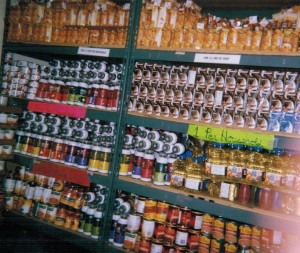
It’s hard, sometimes, for a person to figure out what to donate to a pantry. The supermarket has so many different items on the shelves. What is the best thing to give?
For me, the best food to give to a food pantry is peanut butter. Peanut butter is universally appreciated in a food pantry.
It needs no refrigeration.
It has a long shelf life.
It has no waste.
It is nutritious.
It does not require sophisticated preparation.
No special tools are needed to serve it.
It can be eaten alone or with other foods.
Peanut butter is appropriate with many categories of people: children, adults, seniors, homeless, toothless.
A jar of peanut butter is reasonably priced but it is still a bit expensive for many people.
Peanut is perfect for my needs!
Will you join me? Will you pledge to donate peanut butter to a food pantry.
I’m committing to a jar a week. But, your commitment doesn’t have to be that much. A jar a month will make a significant donation to a food pantry.
Or, even just a jar. Whatever you can give will be enough.
If peanut butter does not resonate with you and your situation, kind thoughts, support, and prayers are always appreciated. Pantries cannot succeed without the backing of the communities where they exist. Your help is necessary to fight hunger.
Thank you for your generosity!
Thank you for reading this post. Please refer to your preferred social media network.
Thurman Greco


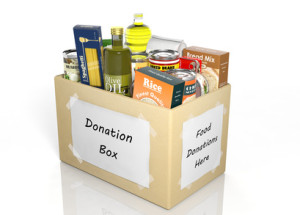
Abundance 1: What Does it Mean to be Hungry?
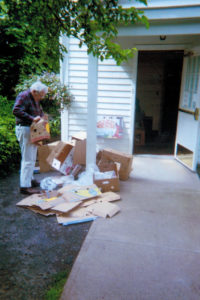
Abundance. What does it mean to be hungry?
For starters, it means you don’t have the money to buy the food you need for the next meal.
For one other thing, it means getting put in a category, or two, or even thirty. And, getting labeled. When the economic downturn began around 2007, new categories and labels appeared weekly, daily even. Journalists, politicians, social workers, sociologists, writers, created new categories as they related stories about hungry and homeless people. Stories about hungry people appeared in new ways and different situations.
The irony: labels created other labels. Simple truths seem endless and obscure the simple realities. Reduced to the lowest common denominator, a person is hungry without enough to eat. And a person is homeless without a roof to sleep under.
Abundance. Examining the label, hungry means missing meals. It means children only eat at school. Life is good when school offers a universal breakfast to all students. Lucy holds in a school with a backpack program so children bring home food on Friday afternoon for something to eat over the weekend.
Being hungry is not a category. It’s a situation. It can happen to anyone.
Hungry people are real. In the food pantry, I saw a person with a life instead of a label. Hunger and homelessness happened in many ways Every hungry or homeless person in the food pantry line has a unique story to tell which is beautiful, spiritually revealing, and heartbreaking. Each story explains what happens to a person when things spin out of control and the world falls apart. Invariably, there is a path to travel.
Questions surface:
“Why do I do what I do?”
“How did I get in this mess?”
“How can I escape?”
“Who will I be in my new life?”
The journey begins, not ends, when things spin out of control, the world falls apart, and the person hits bottom.
Past mistakes lead to a new, better place. It’s a good time to figure out what’s important and what isn’t. It means offloading things you can’t keep anymore.
With nothing left to lost, you have a setup for your new life and opportunity. For some, moving into a job means you pay taxes, rent, maybe buy some clothes, get retrained. This is good for your community, the state and the Fed.
For all the bottoming out, I never saw a person unable to fix the circumstances. Nobody hit bottom and then hung around down there. Everyone seemed to be working toward moving back into someplace or something. As far as I could tell, anyone deciding to commit suicide with a drug overdose or something else left town to end it all. I never saw or heard those stories play out.
Several shoppers died a socially acceptable death by cancer. What is a person to do when the job opportunities evaporate, the house forecloses, the savings spent, Social Security isn’t enough, and the person is too old to start anew.
I questioned the fate of several shoppers in the depths of mental illness. By the time a person was no longer communicating in a language understandable by fellow human beings, life becomes challenging. One young shopper spoke in tweets, whistles, hisses, and other undecipherable sounds. His mother, hidden in the background, did what she could. I always wondered what would happen to him when she died.
This is the heart of the matter because pantries are all about gratitude and abundance. Churches see pantries as an outreach project. Outreach is a popular word. Congregations support feeding the hungry, especially if the money goes to a group of children in Botswana, Somalia, India. The farther away, the better, it seems. When outreach is local things get dicey.
Pantry deniers describe people as freeloaders, homeless people as lazy, and all pantry shoppers as owners of upscale cars.
Whether the car is large, small, old, new, or a broken-down beater even, there’s a larger reality here. Whether the vehicle was driven around or lived in or both, it’s the last vestige of days gone by. By the time a person gets to temporary housing for the homeless, things are reduced to a few clothes, a blanket, hot plate, or maybe an electric skillet or crock pot.
For me, feeding hungry people in a food pantry is an act of gratitude. When volunteers feed hungry people, we own up to the amazing abundance in and around us. We also face our own spiritual hunger. Feeding the hungry in a food pantry addresses the divine hunger issue head-on.
Abundance surrounds both pantry shoppers and volunteers. Many churches and synagogues house a food pantry in a room in the basement. There is absolutely no excuse for anyone in our country to go hungry.
Not everyone recognizes abundance in a pantry. Not everyone recognizes the holiness of hunger. I always know those who see its grace and those who don’t. Those questioning who should be fed and who shouldn’t be fed have trouble with the sacred aspects of hunger.
To be continued…
Thank you for reading this article. Abundance 2 will continue in the next post.
Please refer this article to your preferred social media network.
Thurman Greco

